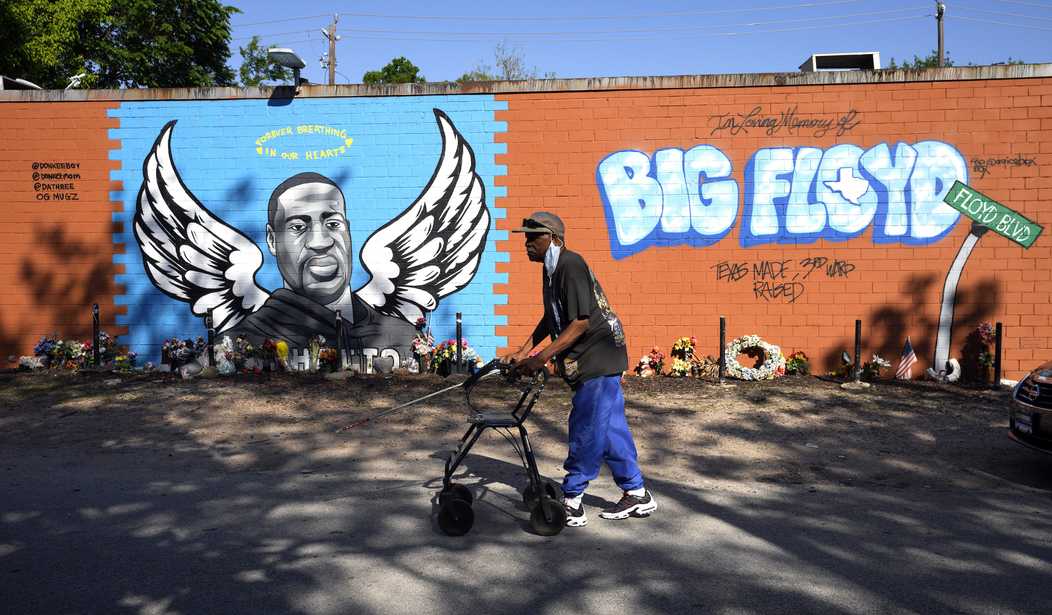"If you pull the camera back and think about 1965, and think about last week, there's been massive improvement. The question is why so many people pretend that that's not true."
That bracing dose of wisdom comes from John McWhorter, Columbia University linguistics professor and author of several books on other subjects, going back to his 2000 book, "Losing the Race: Self-Sabotage in Black America."
He's also a critic of what he calls, in the title of his latest book, "Woke Racism." Despite that, he has been hired as a commentator for the New York Times.
McWhorter, who was born in 1965, correctly identifies the anti-racism of that era as aimed at "slavery and legalized segregation" and "consistent with, indeed compelled by, the nation's founding principles." In contrast, he argues the current wave of anti-racism attacks those founding principles and condemns American society as irremediably racist.
As someone who became eligible to vote in 1965, I would add to his depiction of successive historical cycles the thesis that each great advance in equal rights is followed by the plaint that things are just as bad as ever.
The passage of civil rights acts in 1964 and 1965 ended legalized racial segregation in the South and vastly reduced exclusion of Black people from jobs and public accommodations nationwide. But the late 1960s saw dozens of riots in northern cities with lasting damage to Black neighborhoods, cheered on by local militants "mau-mauing" (novelist Tom Wolfe's term) sympathetic liberals.
Recommended
Their listeners had to admit they were right in saying that northern cities did not turn out to be the "promised land" that postwar Black migrants from the South expected. But white liberals were typically too intimidated to point out that the "militants" were wrong in saying that nothing had changed.
The current wave of anti-racism comes after the election and reelection, both times with popular vote majorities, of a Black president -- something considered unthinkable back in 1965.
Once again, the response is to insist that things are as bad as ever. This wave of anti-racism, writes McWhorter, "becoming mainstream in the 2010s, teaches that because racism is baked into the structure of society, white peoples' 'complicity' in living within it constitutes racism itself, while for black people, grappling with the racism surrounding them is the totality of experience and must condition exquisite sensitivity toward them, including a suspension of standards of achievement and conduct."
For a set of beliefs so contrary to fact to thrive, it requires that it be taken as a religious faith. And that's exactly what McWhorter thinks "woke racism" is: "a new religion (that) has betrayed black America," as his subtitle puts it.
It's not hard to see in this religion a doctrine of original sin (see the NYT's 1619 Project), persecution of heretics (McWhorter gives myriad possible examples) and ritual prayers for forgiveness (from those who "cringe hopelessly at the prospect of being outed as a bigot.")
The policy responses to post-1965 mau-mau were lax policing, lavish welfare for single mothers, racial quotas and preferences. The results were sky-high crime, broken families and overmatched students on campuses.
Policies advanced in the latest wave include defunding or discouraging policing, lavish welfare for single mothers (in President Joe Biden's Build Back Better bill) and racial quotas -- plus career destruction and banishment for those who make the slightest misstep against the latest speech code.
McWhorter commits useful heresy by pointing out the predictable, actually precedented, consequences are bad for Black people -- and for Americans generally. The Black Lives Matter movement's success has had about 2,000 more Black people killed than would have under previous murder rates.
He also notes that propagators of the woke catechism tend to be affluent white liberals, from the corporate chiefs empowering their human resources and "Diversity, Equity and Inclusion" priesthoods to the urban white voters who support the political equivalents of yesteryear's grand inquisitors.
I would add, as one with adult memories of both cycles, that the post-1965 rioters, including those who died, were almost all residents of low-income Black neighborhoods. The more recent wave of "mostly peaceful" (as most media called them) riots seem to have been more multiracial, including white and often drug-addled or mentally ill "antifa" protesters.
Today's woke anti-racists, like the post-1965 mau-mauers, were wrong that Black people were no better off than before despite great political advances. Their success in cowing the larger society, however, owed something to the sense that things had not improved as much as people hoped. Unfortunately, as McWhorter argues, they made things worse for everybody in both cases.
Let's hope ordinary Americans of all ancestries once again manage to make things better.

























Join the conversation as a VIP Member